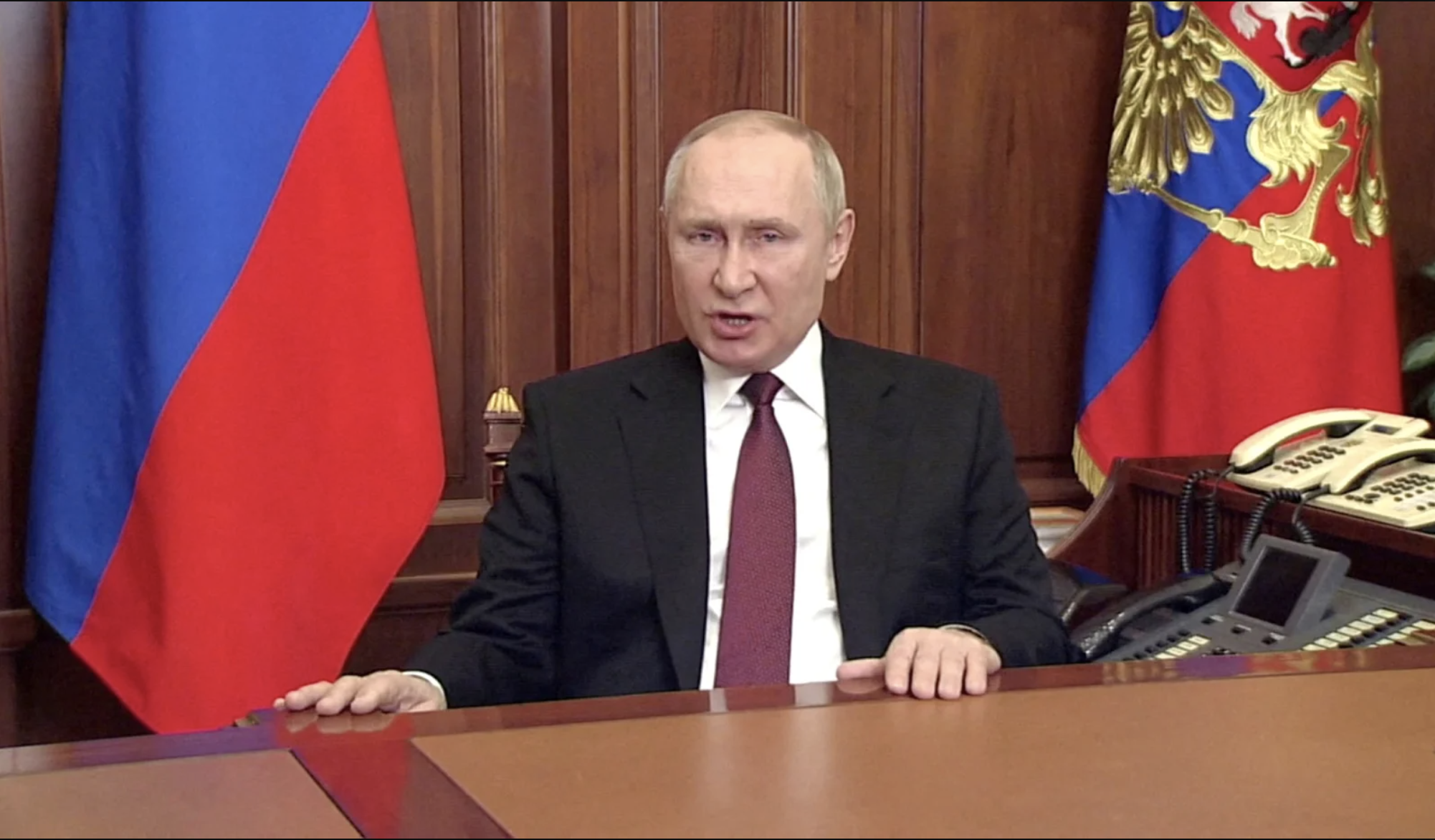Kerby Anderson
One lesson we should learn from history is that we should believe what dictators say. I don’t mean that we should believe all the propaganda they and their governments spew. But I do mean that if a dictator says he will attack a country, we should believe it.
The editors of the Wall Street Journal put it this way: “Take autocrats literally and seriously when they tell us what they intend to do.” They say we really shouldn’t be shocked by the Russian invasion of Ukraine. Vladimir Putin told the world what he would likely do in the future.
In a speech at the Munich Security Conference, Putin criticized the European security order and criticized the expansion of NATO warning that further enlargement would be a “serious provocation” that would justify a Russian response.
That same year, he waged a proxy war in Georgia using Russian separatists that led to military action. Seven years later, he moved into Crimea. And for many years, he has been referring to Ukrainians and Russians as a “single people.”
You could say the same for China. For many years, Xi Jinping has talked about the “unification” of Taiwan with mainland China. He has stressed their ethnic solidarity, but also has been saber-rattling and implying a military action against Taiwan. The Chinese repression of pro-freedom demonstrations in Hong Kong shows the lengths that he and the Chinese Communist Party will go to absorb Taiwan.
The current administration is trying to put together an Iranian nuclear deal. But shouldn’t we believe the Iranian leaders when they make it clear how they plan to use a nuclear weapon in the Middle East, and perhaps against the US?
Some of our leaders always want to assure us that dictators and autocrats don’t mean what they say. Instead, we should listen to what they say and believe what they say.
 Listen Online
Listen Online Watch Online
Watch Online Find a Station in Your Area
Find a Station in Your Area











 Listen Now
Listen Now Watch Online
Watch Online
